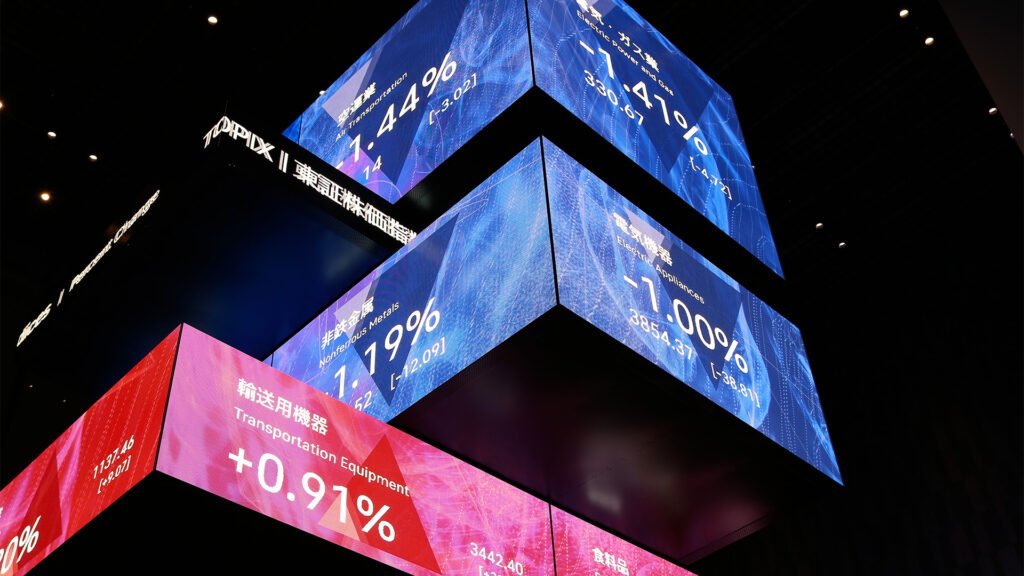Japan’s stock market sold off steeply on Monday as investors assessed better economic growth data and concluded that it could see the end of the current super easy monetary policy stance from the Bank of Japan at its two meetings next week.
The index was down more than 2.3% just after 1 pm Sydney time Monday, accelerating from a negative start to the week.
The Nikkei slumped under the 39,000 mark for the first time since February 21. It had only topped the 40,000 level for the first time last Thursday.
The GDP revision improves the chances of a major change in monetary policy from the Bank of Japan, with Reuters reporting that more bank officials like the idea of ending negative rates this month on expectations of hefty pay hikes in this year’s annual wage negotiations.
In fact, the GDP data was quite a turnaround, with February’s early estimate of a slide in annual GDP growth of 0.4% in the final quarter of 2023 becoming a rise of 0.4% in the later revision released on Monday.
While the size of the rise in GDP was hardly stunning, the improved annual rate was made more dramatic because it directly reversed the early estimate.
But investors may be overreacting to the reversal from bust to boom (sort of). A note of economists pointed out that spending by households and consumers fell again for another quarter. The revision showed Japan had missed a technical recession after economic growth following the big 0.8% contraction in the three months to September.
On a quarter-on-quarter basis, Japan’s GDP grew 0.1%, compared with the initial 0.1% drop reading and a median forecast for a 0.3% rise.
The revision was driven by higher business investment in plant and equipment.
Capital expenditure increased 2.0% from the September quarter, much stronger than the first estimate of a fall of 0.1%. The improvement in investment and GDP was tipped after the Ministry of Finance released figures a week ago that showed capital expenditure rose 16.4% in the fourth quarter from a year earlier and 10.4% on a seasonally adjusted quarterly basis.
But some economists think while the revision was good news, the economy is still stuck in low gear.
“The upward revision to GDP growth in the second estimate released… was smaller than most had anticipated,” Capital Economics head of Asia-Pacific Marcel Thieliant wrote in a client note on Monday.
“While there was a large upward revision to business investment, from the initially reported 0.1% q/q decline to a 2.0% q/q jump, that was partly offset by a drag from inventories and a slightly larger fall in private consumption,” he said.
“Indeed, the figures confirm that consumption has fallen for three consecutive quarters.”
High inflation (by Japanese standards – around 2% to 3%) has crimped domestic demand and private consumption.
Private consumption fell 0.3% quarter on quarter — more than the provisional estimates of a 0.2% decline.
Reuters reported the Bank of Japan is likely to downgrade its assessment on consumption and factory output at its next policy board meeting on March 18-19, citing three people with knowledge of the matter.

